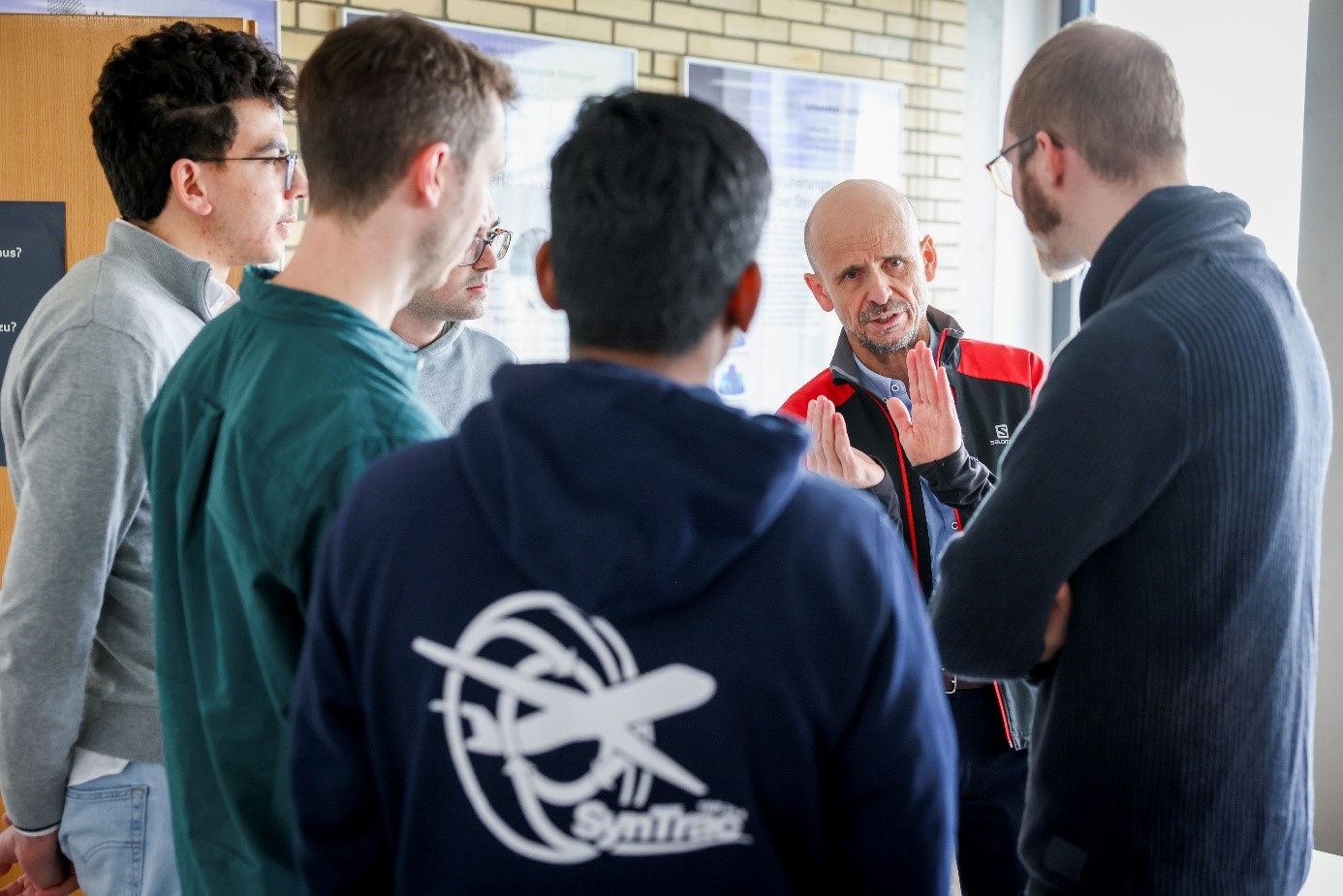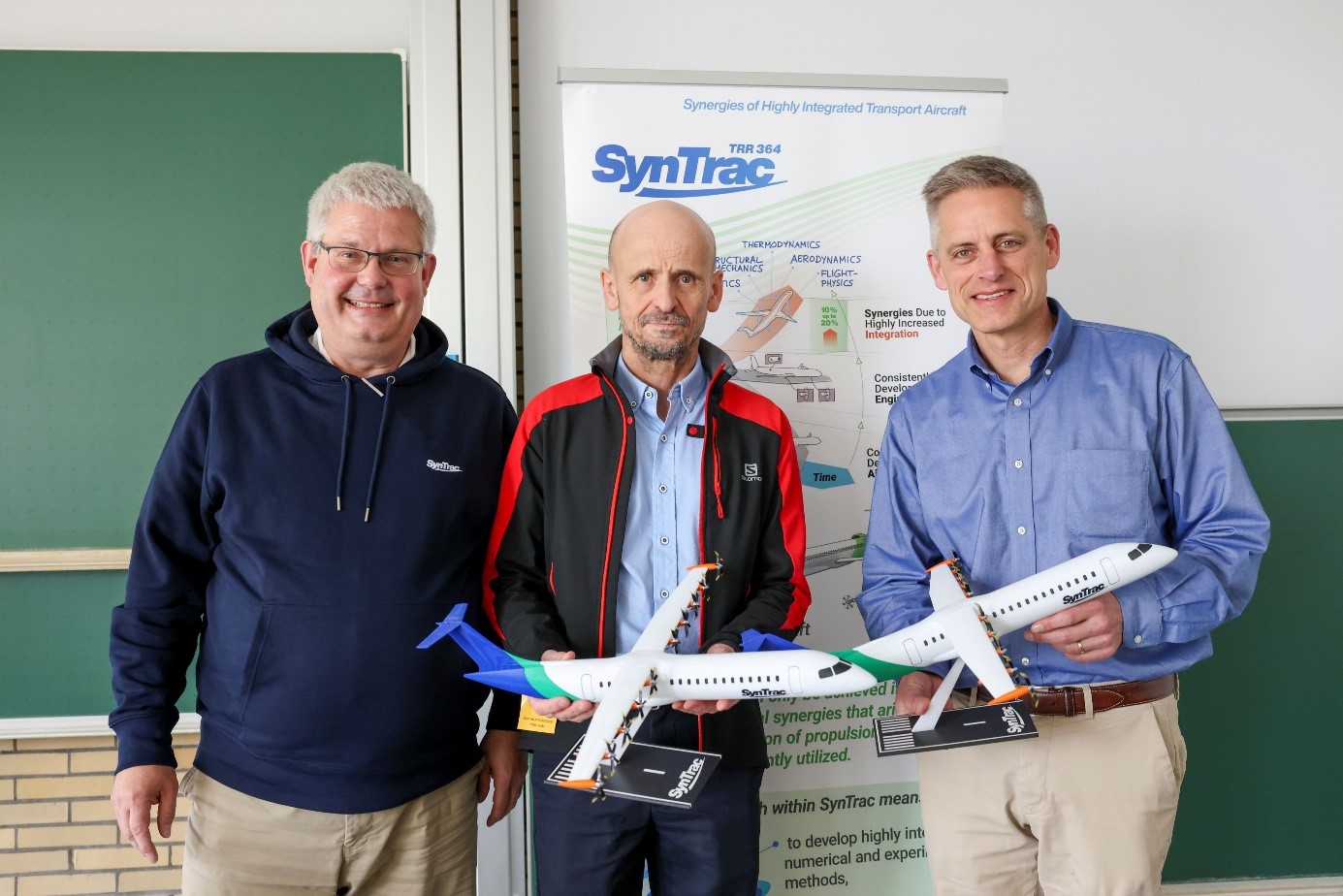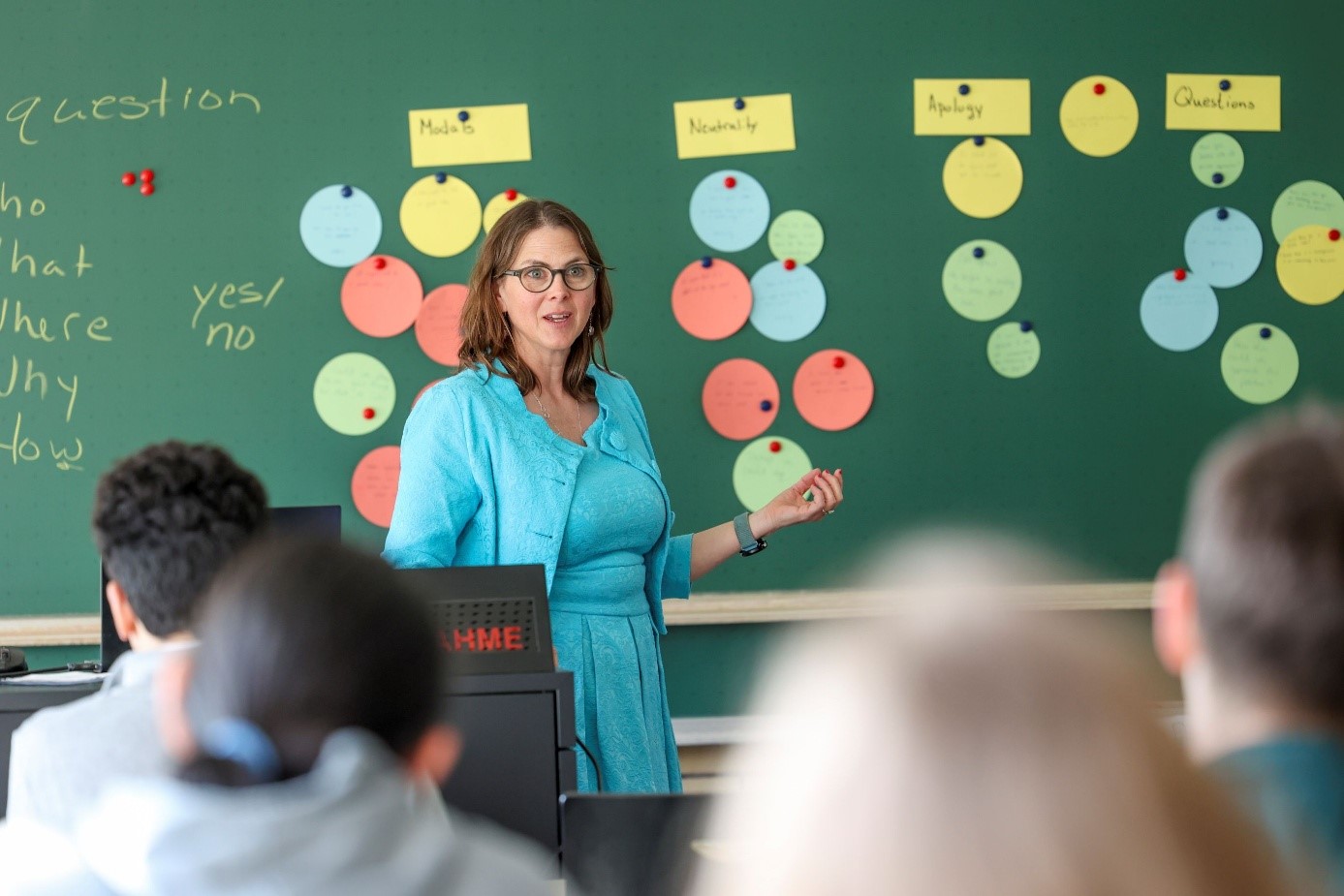Sustainable aviation: Focus on international cooperation and excellence SynTrac Winter School trains doctoral students
The Collaborative Research Centre/Transregio SFB-TRR 364 ‘Synergies of Highly Integrated Transport Aircraft’, or SynTrac for short, is setting new standards for the future of air transport. With SynTrac, TU Braunschweig, together with the University of Stuttgart and partners at the German Aerospace Centre (DLR) and Leibniz University Hannover, is developing the scientific basis for reducing the environmental impact of aviation through significantly greater integration of aircraft and propulsion systems. At the SynTrac Graduate College Winter School, young researchers exchanged ideas with experts from around the world, discussed the latest methods and strengthened their intercultural skills.

Prof. Mark Drela from MIT in conversation with doctoral students. Photo credits: Uli Regenscheit
With visiting scholars from around the world, an International Female Programme and an ongoing lecture series featuring globally recognised experts, SynTrac conducts cutting-edge research with an international perspective. This is also reflected in the training of doctoral students through the Integrated Research Training Group. This year’s Winter School took place in Stuttgart and was an excellent example of SynTrac’s global approach. Two renowned experts from the USA took part in the event: Professor Mark Drela from MIT and Professor Jeffrey Bons from Ohio State University.
Insights from leading experts
Dr. Tobias Ring, head of the graduate college, emphasised the importance of student-driven learning at SynTrac: “Our doctoral students play an active role in shaping their education,” he explained. “This year, they took the initiative to invite Professor Drela, the father of the power balance method, which is one of the most important methods used at SynTrac.”
“It’s about turning idealistic ideas into realistic results.”
Professor Rolf Radespiel, TU Braunschweig
In his lecture, Professor Mark Drela presented the power balance method and the motivation behind the accounting method he developed. This method enables the joint evaluation of propulsion, aircraft and their interactions. It is therefore an excellent starting point for evaluating the synergy effects investigated in SFB-TRR 364 SynTrac. He then took the students on a journey in which they critically examined design approaches and tools that are crucial for projects such as SynTrac, which push existing boundaries. As Professor Rolf Radespiel from TU Braunschweig aptly summarised: “It’s about turning idealistic ideas into realistic results.”

Prof. Stephan Staudacher (co-spokesperson for SynTrac) together with guests from the USA: Prof. Mark Drela and Prof. Jeffrey Bons. Photo credits: Uli Regenscheit
A highlight of the event was Professor Drela’s participation in a workshop based on the method he developed. Taking up, applying and further developing the ideas of other researchers is part of progress in research. However, it is rare to have the opportunity to discuss a tool with the creator of a method in a workshop. The workshop was organised by two doctoral students, Myles Zabel (University of Stuttgart) and Boris Britto (TU Braunschweig). Their work at SynTrac builds on the power balance method mentioned above, and they demonstrated its application in a new tool.
“Education is more than mastering a particular discipline.”
Professor Jeffrey Bons, Ohio State University, USA
Professor Jeffrey Bons’ contribution complemented the methodological discussions with a series of lectures on topics such as fouling in aircraft engines (undesirable accumulation of deposits on surfaces, associated with performance losses), active flow control on wings and improved turbine cooling. His insights into the profession of research were also very illuminating for the students. Professor Bons put it this way: “Education is more than mastering a particular discipline. It’s about the art of being curious and solving problems.” Particularly memorable was a personal comment by Professor Bons that he was born in Germany and spent his early childhood here. This reminded everyone how interconnected the world is and why we must therefore think globally about research and beyond.
Building intercultural competence

Intercultural workshop in action. Photo credits: Uli Regenscheit
Nowadays, a career in research must be thought of in global terms. That is why SynTrac Winter School also emphasised the importance of intercultural competence in international research collaborations. Researchers should be able to work effectively in multinational teams, find their way around different academic environments and understand cultural differences in communication, ethics and research practice.
To further support this, the Graduate School organised a special workshop on intercultural competence, which this year focused on North America as a key player in this field.
Conclusion: Lively and inspiring exchange
The Winter School was intellectually stimulating and also created a dynamic atmosphere for discussion. Many doctoral students praised the event and provided positive feedback during the event itself. The SynTrac Winter School is thus a good example of the project’s commitment to international cooperation, excellence and the development of the next generation of aerospace engineers and researchers.
“The graduate programme and, in particular, the Winter School are valuable exchange formats for the next generation of scientists. The University of Stuttgart, TU Braunschweig and all other partners benefit from international networks to quickly generate the best possible results in research on sustainable aviation in the SynTrac project,” says Dr. Tobias Ring.
